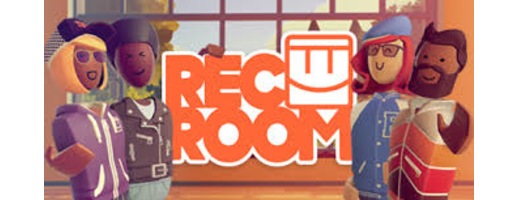Rec Room – An Open Virtual Reality World

Rec Room is a popular social application that originated in virtual reality.
Will it be able to sustain itself after Facebook launches its own competing app?
Rec Room is a virtual reality social networking platform by the company Against Gravity that allows users to create their own rooms within a virtual world.
As we might expect from the platform exercise in class, Rec Room is one of the few top-notch titles in VR that is completely free. Other top-notch titles that are also free tend to be social as well, such as AltspaceVR. Rec Room’s funding comes from investors; the game is currently not monetized at all. While they have recently added an in-game currency, there is no way to spend real money in order to obtain more of the in-game currency.
Value in Rec Room is created in the form of a novel method of social interaction. It’s one of the first large-scale user-created worlds in virtual reality. While Rec Room does provide default environments, such as paintball, disc golf, and charades, much of the user interaction takes place in user-built rooms, which can copy any of the elements from the default rooms. For example, one of the first rooms on Rec Room to gain a large number of views was The Sad Man, an interactive story about a man dealing with depression.
By allowing users to build rooms and stories, Against Gravity has created a classic platform with moderate networking effects. The more users join, the more likely the users will create interesting rooms for people to visit and experience. The more interesting rooms there are, the more likely people are to download and use Rec Room.
The population of Rec Room has gone through changes over time. Roughly two years ago, most of the people I met in Rec Room were high-income adults testing out virtual reality and the experiences that were possible within it. Now, I meet many more kids whose voices and actions put them in the age range of middle school or younger, along with some adults. One video in August of 2018 compared Rec Room to Roblox, a famous kids-oriented building site.
Virtual reality is anticipated to be a $120.5 billion dollar market by 2026, so it’s reasonable to expect that more users will consistently join Rec Room. However, in July of 2018, Against Gravity made an interesting pivot with Rec Room, allowing it to be played on PCs instead of Virtual Reality devices. They have since also released a mobile app on iOS and Android as well. This initially caused backlash from VR players who missed a VR-only world, and in games, VR players were often critiqued for using their VR-only abilities such as teleporting as a means of locomotion. However, eventually the community became more used to having non-VR players and VR players cooperating or competing together.
I believe that the move from strictly VR to a more open mobile/desktop/VR platform was a move by Against Gravity to quickly gain a larger user base, as the VR adoption rate is not especially high right now. It also gives Against Gravity a competitive advantage against other companies, since implementing a virtual reality game smoothly on many different platforms incurs a technical debt that may make it difficult for other firms to imitate.
Scaling on multiple platforms has been challenging as bugs occur on some platforms but not others. But the Rec Room team seems to have been adapting rapidly to this change and bugs are occurring less frequently. Since all players can interact with one another, the backend and data storage of the game does not have to be modified for each individual platform, and the fact that Against Gravity has already branched out to three new platforms beyond VR makes it likely that their team could quickly adapt to adding even more platforms (such as augmented reality) as they arise.
While the Rec Room population seems to be self-supporting right now and their infrastructure is scalable, a threat is on the horizon. Facebook, the company that owns Oculus, a VR hardware and software provider and platform, recently announced their own open-world social application called Facebook Horizon. The beta version of Horizon is currently only available to a select amount of people through their application. However, the introduction of a new social interaction application created by the platform that Rec Room uses to distribute their application could be a huge loss for Against Gravity. Facebook, being in control of the platform, will have options for cross promotion that are unavailable for Against Gravity, and it’s likely that users may flock to a VR social app created by the biggest social media platform in history.
Luckily, even if users do end up on Facebook Horizon, multi-homing across apps is fairly common, and Rec Room may still hold on to its user base even as players begin using Facebook Horizon as well.



I am surprised that Rec Room chose to develop its product on multiple platforms, and not too surprised to hear about the bugs. I am not sure I agree with you about the multi-homing across platforms. As someone that sinks time in gaming, I would say that I would probably prefer to spend mine time in one application and not have to jump around day to day. If some of my friends were on a different platform I would probably do my best to convince them to change based on whichever app had the best features and eventually highest network effects.